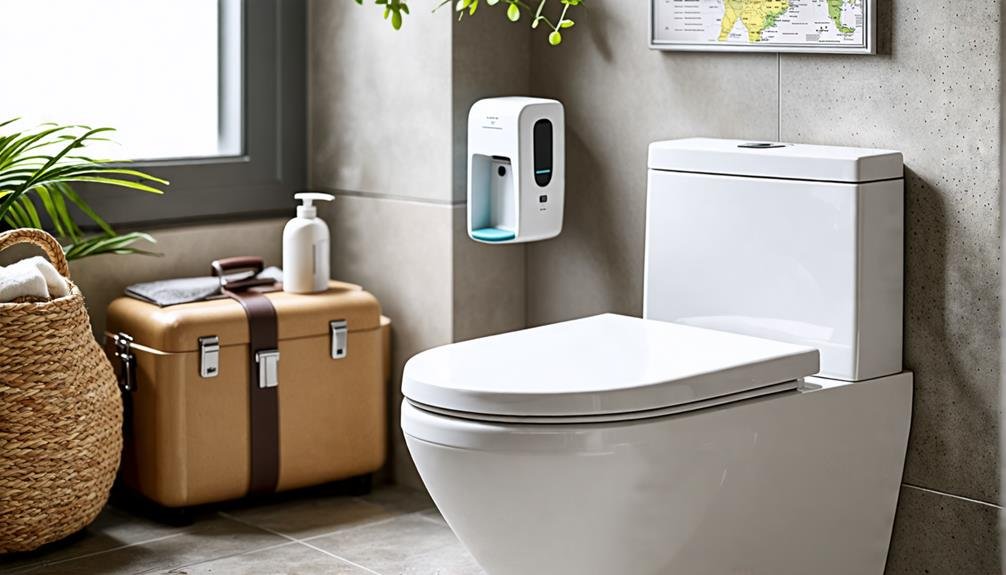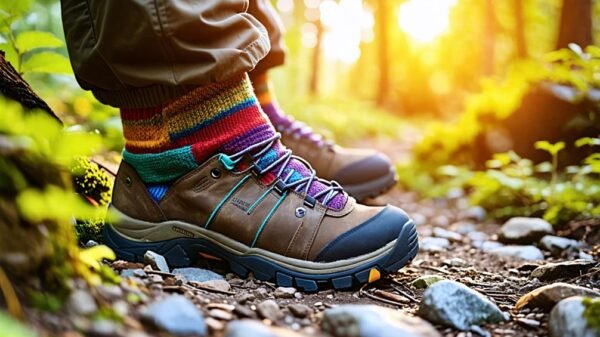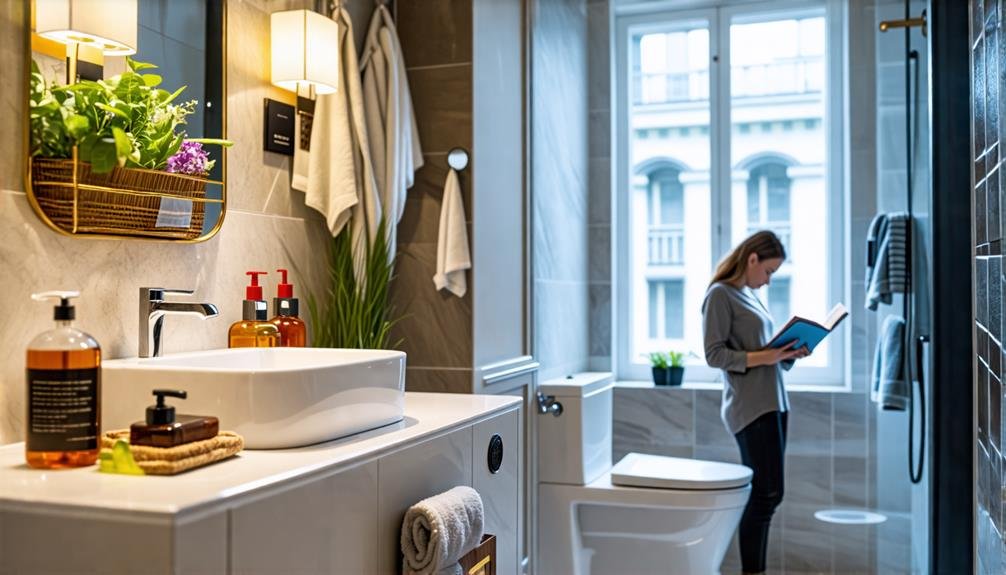To avoid embarrassing bathroom mistakes while traveling abroad, familiarize yourself with local restroom etiquette. Different countries have unique customs regarding toilet use, with some preferring water cleansing over toilet paper. Be aware of access policies, such as fee-based restrooms, particularly in European cities, and always carry local currency. Additionally, prepare for varying hygiene practices and always have tissues or wipes in case facilities are lacking. Learning features of toilets, especially in places like Japan, and planning restroom breaks can enrich your experience. Understanding these nuances enables smoother interactions, ensuring comfort in unfamiliar environments, and more information awaits you on this crucial topic.
Understanding Cultural Bathroom Etiquette
Cultural restroom etiquette differs significantly worldwide, shaping behaviors and expectations regarding toilet use. Understanding these variations is vital for avoiding restroom blunders while traveling. For example, in many regions, using water for cleansing is favored over toilet paper, which may confuse individuals accustomed to Western habits. It's important to learn international travel guidelines that highlight these differences, such as recognizing that in some societies, utilizing the left hand for specific activities is deemed disrespectful.
In Japan, following particular practices, like donning special slippers in lavatories, is essential for maintaining hygiene and showing respect. Moreover, in various European nations, tipping restroom attendants is customary; neglecting to do so might be perceived as a breach of travel decorum.
Restroom Access and Payment Tips
When traveling abroad, understanding restroom access and payment methods can prevent uncomfortable situations. Many countries require payment for restroom use, often necessitating cash, while language barriers can complicate finding facilities. Utilizing mobile apps designed to locate restrooms can be invaluable, ensuring that you are prepared and informed during your travels.
Payment Methods Abroad
Travelers should note that in various nations, accessing lavatories may involve a fee, which makes carrying local currency essential. In diverse locations, using restrooms can incur charges, catching unprepared visitors off guard. To enhance your travel experience, keep these restroom payment suggestions in mind:
- Understand the local currency: Get to know the monetary units and their values to ensure seamless transactions.
- Carry small denominations: Many restroom facilities might not accept larger bills, so it's prudent to have coins or small notes readily available.
- Investigate restroom options: Use applications like Flush or SitOrSquat that offer details about restroom accessibility and payment methods.
- Recognize varying customs: In certain regions, you may also need to tip attendants, so familiarize yourself with local etiquette.
Language Barrier Solutions
Accessing restrooms and managing payments can be difficult, particularly in areas where communication hurdles arise. In various nations, public restrooms often charge a fee, typically requiring cash. It's advisable to carry small bills, as larger denominations may not be accepted. Certain locations may feature coin-operated facilities, so having coins available is wise.
To navigate restroom locations effectively, consider downloading apps like Flush Toilet Finder, which assists in finding nearby toilets while on the go. Additionally, familiarizing yourself with essential phrases in the local dialect, such as 'restroom' or 'toilet,' can significantly enhance communication. If language becomes a barrier, simple gestures like pointing or miming can effectively express your needs.
Be aware that in some cultures, restrooms might not be easily visible, necessitating inquiries for directions. Don't hesitate to ask locals for assistance, as they are often eager to help. Preparation and adaptability are key. By understanding restroom access and payment methods, you can facilitate a smoother travel experience, enabling you to enjoy your journey with more freedom and confidence.
Flushing and Hygiene Practices

Flushing and hygiene practices differ greatly among cultures, influencing how travelers manage restroom use in various nations. Recognizing these distinctions is essential for tourists who want to uphold personal cleanliness and steer clear of awkward moments.
Important points include:
- In places like Greece, Egypt, and China, flushing toilet paper is often discouraged; instead, disposal in designated bins is standard.
- Some areas might have limited availability of hygiene products, such as feminine hygiene items, necessitating that travelers bring their own supplies.
- Singapore has strict regulations regarding flushing, imposing fines for those who do not comply.
- In numerous cultures, using water for cleansing rather than toilet paper is prevalent, making it important to understand local customs.
Familiarity with these flushing and hygiene customs can enhance your journey and promote respect for local traditions. Preparation and flexibility are vital; by learning about the restroom norms of your destination, you can handle these situations with confidence and maintain comfort while exploring the world.
Navigating Japanese Toilet Customs
Navigating Japan's restroom customs is crucial for a respectful visit. Japanese toilet culture highlights hygiene and etiquette, starting with special bathroom slippers. When entering a restroom, switching into these slippers is expected, as it separates the bathroom from living spaces.
Furthermore, modern Japanese toilets, such as those from Toto, feature numerous buttons and settings, including bidet options and heated seats. Understanding these symbols can enhance your experience. If you're unsure about a button, a translation app can provide immediate guidance, helping you adjust settings comfortably.
Cleanliness is another key element of Japanese toilet etiquette. It's important to leave the toilet as clean as you found it, which may include disposing of used toilet paper in specific bins. By adhering to these customs, visitors can enjoy a seamless experience in Japanese restrooms, enriching their appreciation of the country's unique culture.
Managing Public Restroom Experiences

Managing public restroom experiences requires understanding different cultural practices and specific etiquette that can vary widely. By recognizing these differences, you can enhance your travel experience and prevent uncomfortable situations.
- Prepare for coin-operated toilets often found in European cities.
- Always keep tissues or wipes on hand, as some facilities may not provide toilet paper.
- Learn about local customs regarding restroom cleanliness and behavior.
- In some regions, using your left hand for hygiene tasks may be seen as disrespectful.
Essential Travel Hygiene Items
When navigating public restrooms, having essential hygiene supplies can greatly enhance your comfort and confidence during your travels. Key items to pack include travel-sized Purell hand sanitizers, Clorox disinfectant wipes, and soft tissues. These products cater to the unpredictable nature of public restrooms, where necessary supplies may be limited or unavailable.
Purell hand sanitizers are crucial for maintaining cleanliness after using facilities, especially in areas where soap and water may not be easily accessible. Clorox disinfectant wipes can be utilized to sanitize surfaces prior to use, ensuring a more hygienic experience. Additionally, tissues provide a dependable alternative when toilet paper is either absent or inadequate.
Consider including a compact, portable seat cover in your travel kit. These covers create a barrier between you and public toilet seats, boosting your sense of security. If you have specific hygiene requirements, such as feminine hygiene products like Always pads or tampons, ensure you carry a sufficient supply, as availability can differ by location.
Lastly, a reusable Hydro Flask water bottle can be handy for rinsing or cleaning purposes. By including these essential travel hygiene items, you can navigate public restrooms with greater ease and confidence, allowing you to focus on enjoying your adventures.









































